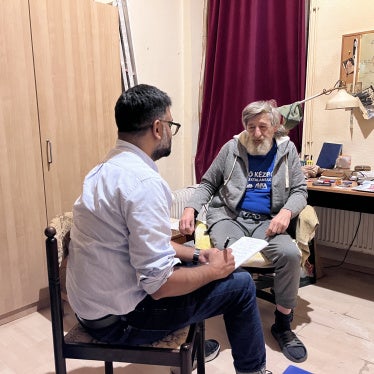Human Rights Watch welcomed the release of the U.S.-U.K. governments' voluntary principles on security and human rights in the extractive industries.
"In an area where no standards exist, we see the development of some guiding principles as a positive first step," said Kenneth Roth, Executive Director of Human Rights Watch. "But this is only the beginning of the process. The business, human rights, and government communities all still have a lot of talking to do."
The process of developing the principles began in February 2000. They were formulated as a result of discussions between the U.S. Department of State, the U.K. Foreign and Commonwealth Office, transnational oil and mining companies, human rights organizations, unions, and business organizations.
The companies involved in the process included BP, Royal Dutch/Shell, Chevron, Texaco, Enron, Rio Tinto Zinc, and Freeport McMoRan. Human Rights Watch, Amnesty International, the Lawyers' Committee for Human Rights, and International Alert were among the human rights organizations involved in the process. The International Federation of Chemical, Energy, Mine, and General Workers' Unions was the representative for trade unions. The Prince of Wales Business Leaders
Forum and Business for Social Responsibility were the participating business organizations.
The principles are part of an ongoing effort to ensure that corporate security arrangements fully respect human rights. In the past companies were criticized because their security providers committed human rights violations. Notable examples over the last few years include BP in Colombia and Shell and Chevron in Nigeria.








